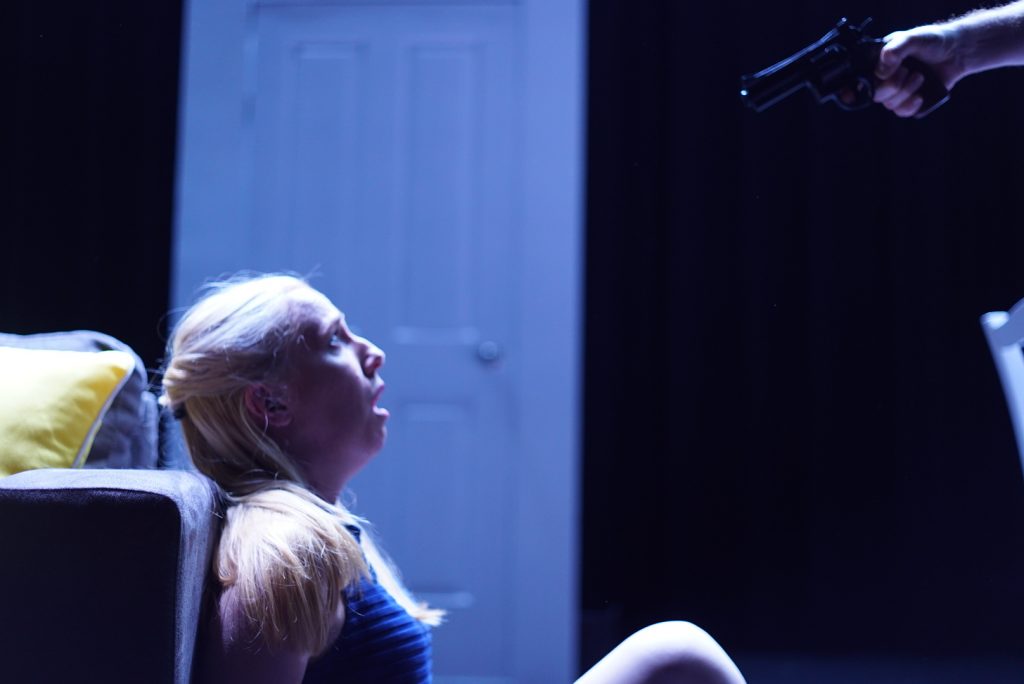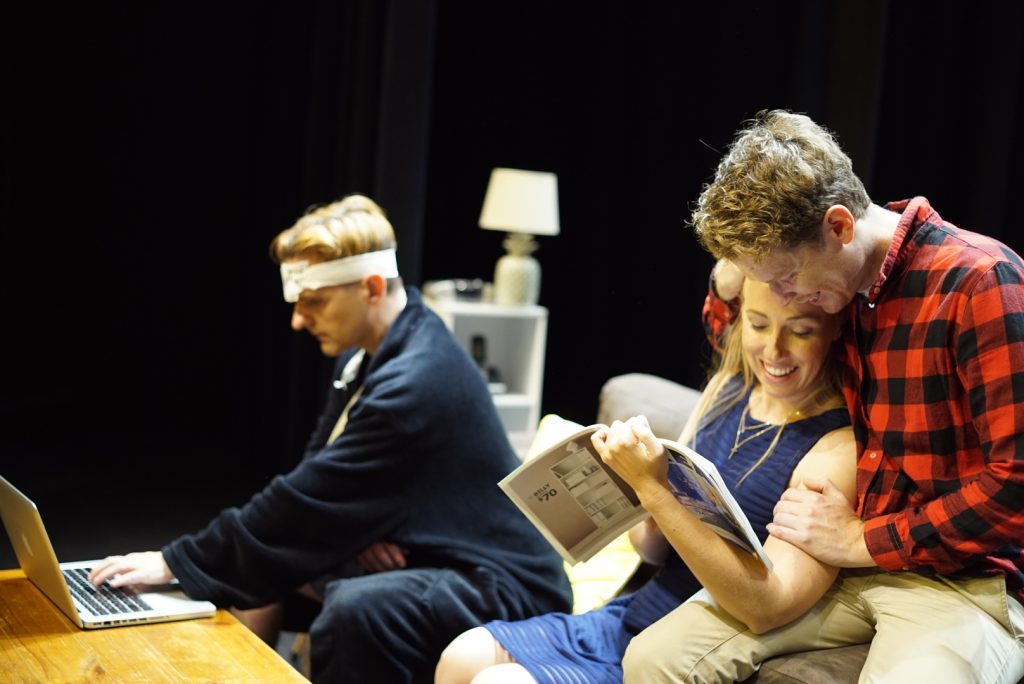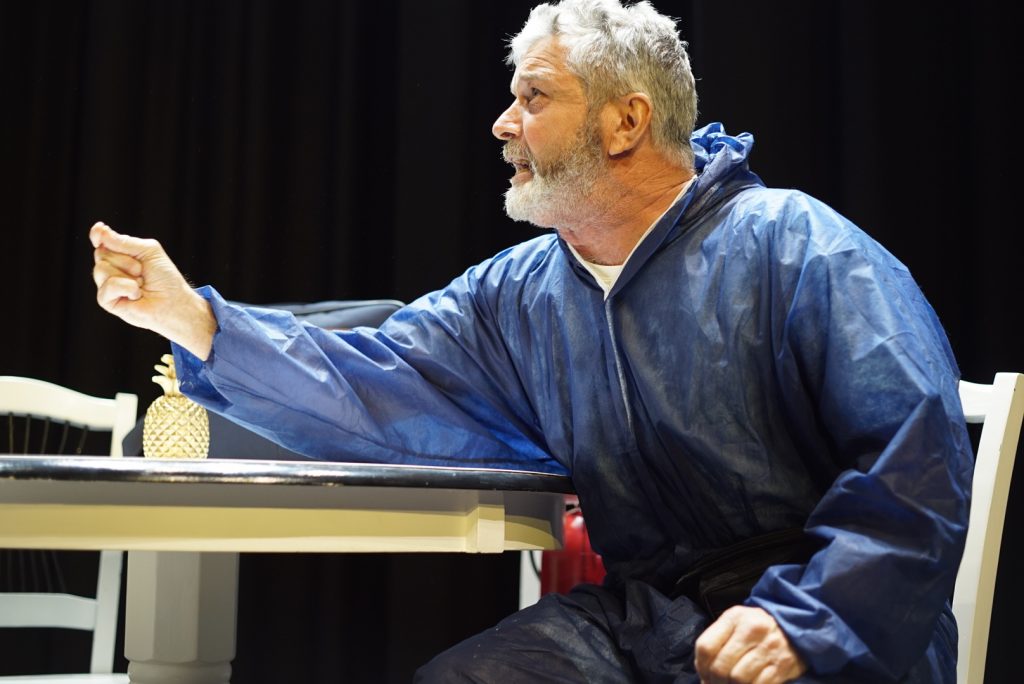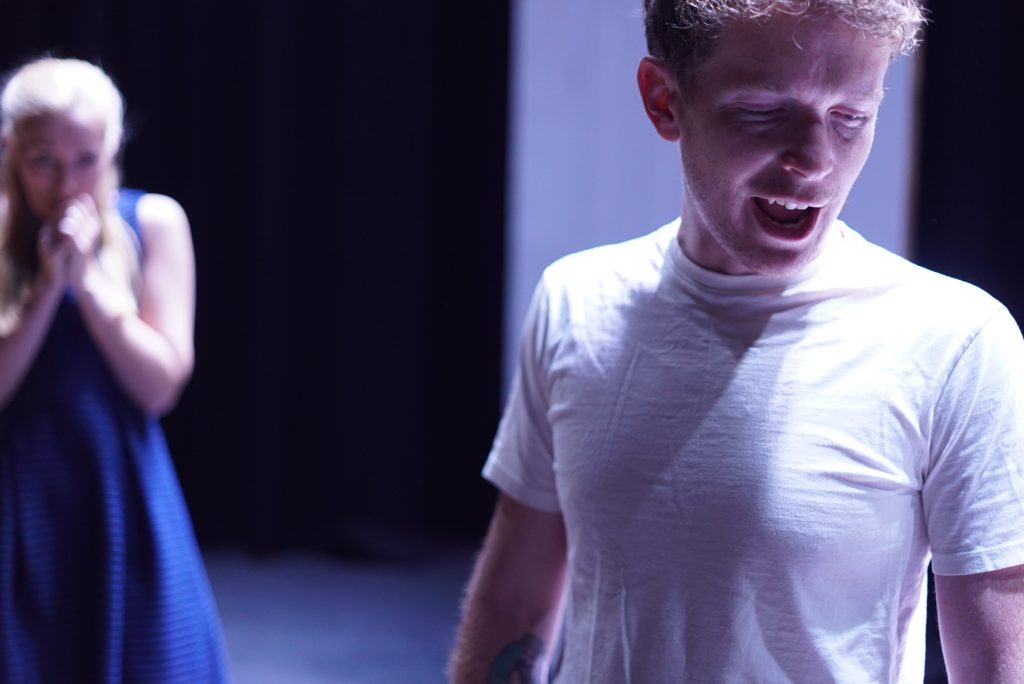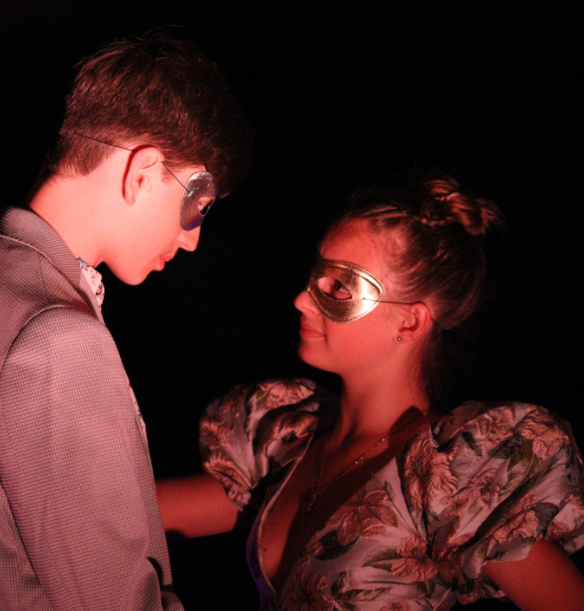
‘Grace’ // Minola Theatre
‘Grace’ was conversational.
Minola Theatre’s latest production ‘Grace’ invited debate on bigger issues, moving audiences to question the power of faith. In a work that may be unknown to some, the tragicomedy explores human assumptions about religion with oddball characters and varying beliefs.
Sparking new conversations about love and change, ‘Grace’ observes relationships and the meaning behind faith (or even being faithful). The play’s storyline follows an evangelical Christian couple who have relocated to Florida to pursue a gospel-hotel business deal. While Steve sees God’s work behind this mega-career boost, Sara is left to make friends with an accident-scarred NASA technician next door; and this new pairing forms a connection that even religion cannot justify.
Written in 2004, ‘Grace’ is an intense one-act script that is notorious for its violent and confronting opening sequence. Essentially a play that starts at the end, actors have the challenging task of rewinding action to then echo events from the beginning. The audience was exposed to the melodramatic finale firsthand and must await the graphic conclusion with a hope that something will change the inevitable outcome.
Playwright Craig Wright has worked magic into a script that compellingly traverses worlds and lets them collide naturally. The scenes work like a movie where the action is played, paused, repeated and reversed. But at the core of the dialogue, is a work that attempts to have a conversation about faith, with four polarising views that are incredibly human and right within their own selves.
Within the text, there are also a variety of clever ironies that further contrast characters. For example, Sam (played by Daren King) has a scarred skin condition, and the opposing Steve (played by James Elliott) develops one of his own; an itching sensitivity and chemical reaction. Also, Karl (played by Peter Condon) lived through the German war and the cruel Nazi regimes, yet he’s settled in America as an exterminator.
To put it frankly, ‘Grace’ is a script any creative team would revel in if given the chance. There are a lot of interesting elements that can be explored, and this was evident in Minola Theatre’s latest staging.
Directing and Producing duo Kat Dekker and Bianca Butler-Reynolds have a keen finger on the pulse of contemporary theatre showcased in the choosing of this play – the dialogue was superbly witty, the structure presented a challenge for actors, and the themes easily evoked an audience’s imagination. ‘Grace’ was a risk-taking feat that highlighted the type of discourse and creative style this emerging theatre group are keen to undertake.
In terms of the staging, the set design was kept simple with a couch, coffee table, dining table and door frame neatly arranged around the space. Dekker and Butler-Reynolds delivered static blocking, where actors were instructed to work around certain areas. Wings were used as extended bedrooms and kitchens, and the four-cast ensemble navigated each other’s pathways.
Within the script, Wright has chosen an open set to resemble two apartments. That means, performers are required to act simultaneously in the one space, but within their own worlds like it was their own home. Dekker and Butler-Reynolds realised this component beautifully and it aided tension wonderfully.
A highlight was when two characters debated lovingly about having a baby and on the opposing side of the stage, a man furiously interjected profanities as he became frustrated with his computer. Another stunningly created moment, was when two actors were kept awake in the dim-lit confides of their respective apartments, consumed by their indiscretions. It showed just how similar two circumstances can be.
While the direction was effective and worked well within the confines of the Ron Hurley Theatre, at times, audiences were lost within the storyline. This happened particularly during a scene where actors sat at a table for a long period of time discussing religion. While a provoking conversation played out, the stillness lacked dynamics.
Although it was clear that the director’s intent was to make it as relatable as any conversation had at a round table, for onlookers it sat too long in the one spot. Regardless of this, the professional team of creatives delivered a work that was new and rewarding for its cast.
In the lead role of “Jesus-Freak” Sam, James Elliott brought a wide-eyed religious fanaticism with tunnel-visioned selfishness and a pained sincerity. Elliott was scattered as we saw the stresses of his business deals consume him, which also destroyed the life he had moved to create. Having seen the outcome played first, the audience was already offside with this character and his self-determined arrogance. Despite this, Elliott delivered in the role with energy and charisma.
As Sam’s wife Sara, Ellen Hardisty was honest and mousey. Entering the scene, her first impression was almost as a silly cheerleader to her husband. However, it was easy to be moved by Hardisty, especially when her character unravelled and she confronted her own inner desires. As Sara’s faith weakened, Hardisty was consumed with a developing hope, disguised as feelings for her lonely neighbour.
In one of the most acutely focused performances of the evening, Daren King as Sam was scarred on several levels. We felt his guilt, his insecurities and his vulnerabilities, as he caved into love and acceptance – a feeling he had unknowingly longed for. His friendship with Sara was touching, and King really moved the production with pace and stamina. King delivered a well-conceived portrayal that was raw and a standout of the evening.
Rounding out the cast, was Peter Condon as the atheist pest-controller, Karl. Providing much of the comic relief within the show, Condon harnessed a great characterisation as the aging, blunt German immigrant. While his jokes were aplenty, unfortunately, Condon’s comic timing was off, which consequently affected the overall pace of the production. At times, it felt like Condon was struggling to remember lines, which slowed the tension overall.
Despite the tables drastically turning in this piece, ‘Grace’ took us on a creative journey into belief. One of the biggest takeaways for this production wasn’t the gruesome plot twist, but for an audience to really think about their own views, which are constantly challenged in the play. Although the script could dig deeper into these opposing debates, it really is an interesting work that needs to be seen to be believed.
‘Grace’ performs until Sunday, 4 August 2019. For more information about Minola Theatre and their upcoming productions, visit their Facebook page here.




